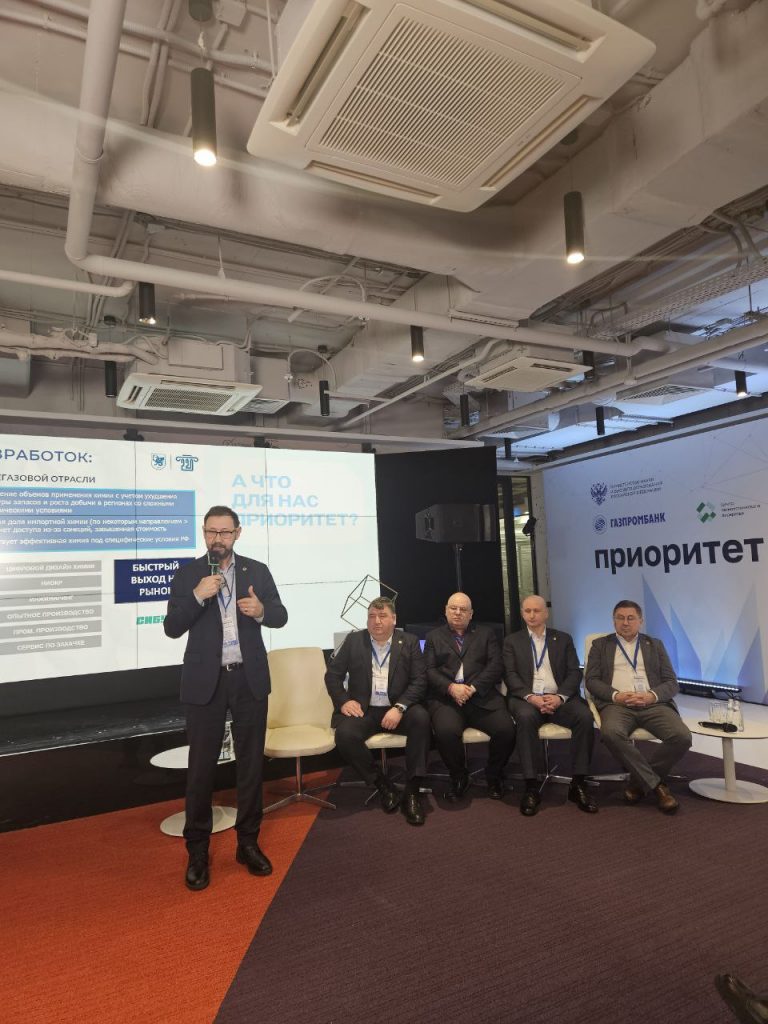Rector Lenar Safin: “The University’s target model implies increasing industrial collaborations in priority areas of technological leadership”

A pitch session of strategic technology projects implemented by universities participating in the Priority 2030 program was held in Moscow.
The event was organized by the Ministry of Science and Higher Education of Russia and Gazprombank.
In addition to Minister Valery Falkov and Deputy Chairman of the Board of Gazprombank Dmitry Zauers, representatives of federal agencies and industry experts took part in the session. They familiarized themselves with the presentations of scientific projects of 15 leading Russian universities.
Based on the results of the pitch session, a portfolio of technology projects will be formed for further support and financing by Gazprombank and its partners. The criteria for selection and methods of technological expertise will also be defined, proposals for the operational model of such projects and financing instruments will be formed, which will be used to assess all participants in the Priority 2030 program (140 universities) in 2025.
Rector Lenar Safin, speaking on behalf of KFU, noted the university’s leadership in extraction and processing of hydrocarbons, chemistry and petrochemistry, information technology and medicine.
“When forming the strategy of technological leadership, we completely redefined the target model of the university. The main thing is to strengthen industrial collaboration in priority areas and train specialists capable of creating and working with new science-intensive technologies,” he said.
The Rector also added that the new strategy of the university implies the implementation of three main technological projects. We are talking about complex initiatives in biotechnology and pharmaceuticals, oil and gas technologies, and new materials and chemistry.
Danis Nurgaliev, Vice-Rector for Earth Sciences, spoke in more detail about one of these projects. He presented new solutions for the development of unconventional hydrocarbon resources and late-stage deposits.
In addition, due to interdisciplinarity, the project contributes not only to the production of cheap and environmentally friendly oil, but also to ensuring technological leadership in the areas of unmanned aircraft systems, new materials and chemistry, space and energy industries.

